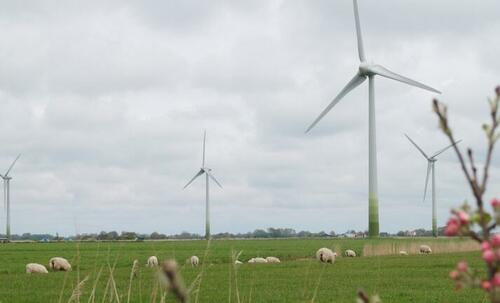Most Germans Oppose Combustion Engine Bans And Meat Reduction Measures To Save The Planet
Authored by Thomas Brooke via Remix News,
A majority of Germans oppose key government climate protection proposals such as banning combustion engines, restricting meat consumption, or imposing flat-rate taxes on air travel, according to a YouGov poll conducted shortly before the 30th UN Climate Change Conference in Belém, Brazil.
The survey suggests that citizens are more likely to back environmental measures that either benefit them directly or avoid placing major financial burdens on households.
As reported by Stern, 69 percent of respondents said they opposed a ban on diesel and petrol vehicles, while 68 percent were against limiting weekly purchases of meat and dairy products, while 56 percent rejected the idea of higher air travel costs through a flat-rate ticket tax.
Conversely, strong majorities supported subsidies for energy-efficient housing (69 percent), measures to strengthen domestic production (71 percent), bans on single-use plastics (69 percent), and higher taxes on high-emission companies (66 percent).
The German government has pledged to reach climate neutrality by 2045 — sooner than many industrialized nations—but its progress in reducing emissions has slowed, particularly in the transport and housing sectors.
According to the survey, while most Germans agree that climate change is a serious issue and largely caused by human activity, the willingness to change personal behavior remains limited.
Only around a quarter of those surveyed said they would voluntarily reduce air travel or meat consumption, or switch to an electric car.
Even fewer expressed willingness to stop eating animal products altogether or to buy only second-hand clothing. Measures that are convenient or low-cost — such as avoiding single-use plastics or adding greenery to balconies — were far more popular.
Despite a reluctance to alter lifestyles, 46 percent of Germans believe the worst effects of climate change can still be prevented if drastic changes are implemented, while 16 percent think the status quo is sufficient, and 15 percent believe it is already too late to avert the crisis.
Concern about global warming has nonetheless declined: 63 percent say they are worried about the issue, the lowest figure for two years, as global conflicts, inflation, and energy prices take center stage.
Tyler Durden
Wed, 11/12/2025 – 05:00ZeroHedge NewsRead More





 R1
R1
 T1
T1


